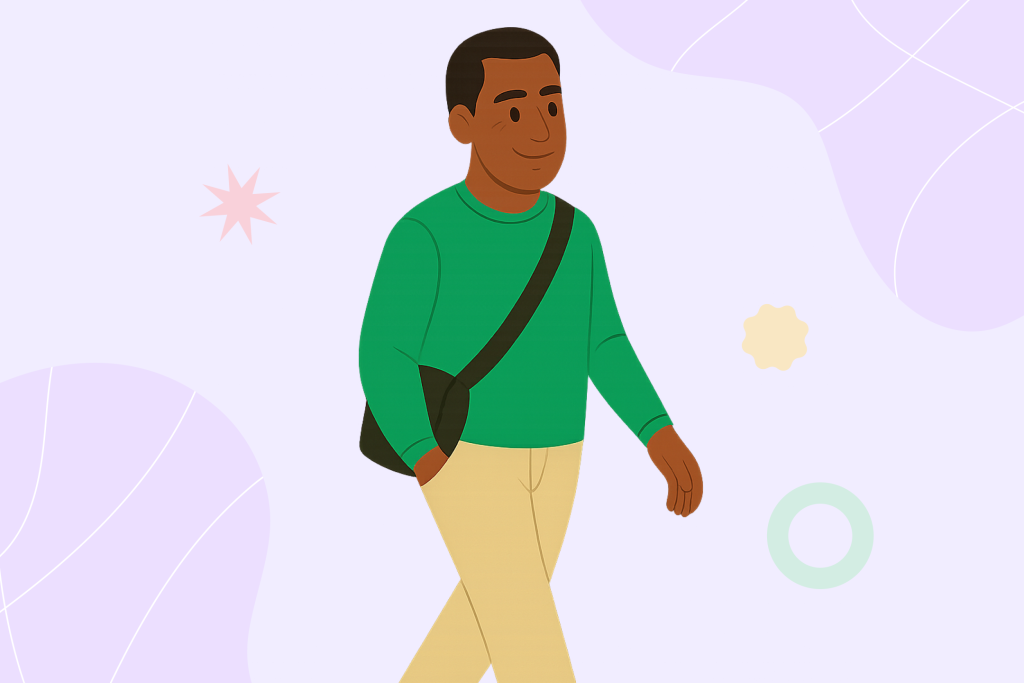Culture shocks and the small surprises you will notice once you move abroad.
Moving abroad often comes as a shock to many immigrants. There are changes you don’t always expect; you’ll find new opportunities, better systems, or a fresh start you dream of. But nothing prepares you for what to expect, whether you’re moving to the UK or not. No matter how well you’ve planned, there’s always one thing that catches you off guard. For some, it’s the weather. For others, it’s the culture, the people, or even etiquette. We spoke with five Nigerians living abroad about what shocked them when they moved to their new countries.
1. “How kids who come of age were asked to pay rent.” — Seyi, moved from Abuja to Toronto, Canada

“I thought I’d done enough research about moving to Canada so nothing would surprise me,” Seyi laughs. “But I was still shocked. What really got me was seeing 16 and 17-year-olds being asked to pay rent or help with bills. In Nigeria, you can live with your parents as an adult without being asked to pay for anything, at least until you graduate and get a job.”
The real shock of moving to Canada as a Nigerian came when Seyi’s neighbor warned his teenage son that if he didn’t get a job to contribute to rent, he’d have to move out. “That’s when I realised people here value responsibility, everyone is expected to pull their own weight,” he says.
It took a few months, but Seyi learned to appreciate it. “Now I get it. The bills are a lot from taxes, groceries, and everything costs something. Here, nothing is free, and handouts don’t come easily. Of course, I was shocked about it at first, but now, it’s one of the things I admire most. You earn, you spend wisely, and you learn accountability.”
2. “They are extremely polite, I almost feel like it’s a pretense” — Ada, moved from Lagos to Texas, US

“The first thing that shocked me was how polite everyone was,” Ada laughs. “People can literally apologise when you step on them. That’s how polite they are. I come from a place where people can be rude for no reason, so it was surprising.”
Coming from Lagos, where being impolite is almost part of daily life, Ada was shocked by how kind random strangers are. “Here, everyone wants to help you, even without being asked. People really look out for one another. Back home, if someone has an emergency, most people just mind their business.”
After a few months, Ada adapted. “Now I greet strangers with a ‘Hi’ or ‘Good morning,’ I say ‘Please’ a lot more, and I actually queue,” she says, smiling. “At first, standing in line felt strange when I knew I could easily skip ahead, but now I do it proudly.”
She also noticed how relaxed the work culture is. “People dress comfortably here. Back home, workwear depends on where you work and is usually more formal. Here, comfort comes first.”
3. “The weather humbled me.” — Emmanuel, moved from Lagos to London, UK

“I thought I knew what cold meant,” Emmanuel says, shaking his head. “I did not.”
When he landed on a January morning, the biting chill hit him before he even left the terminal. “It was like the air itself rejected me,” he jokes. “My hands went numb before I got my luggage.”
The first few weeks were an adjustment. Emmanuel layered up, but the cold still found its way in. “I wore everything I owned at once, but I was still cold. I even bought a scarf just because everyone else had one.”
But beyond the temperature, the weather affected his daily rhythm. “In Nigeria, the sun tells you what time it is. You wake up with light, and you wind down when it’s dark. In the UK, the sun disappears at 4 p.m. in winter.”
With time, he learned to adapt. “Now, I have a whole system. I check my weather app before I leave. I also invest in a good jacket. And I can handle anything after surviving my first British winter.”
4. “How independent everyone is.” — Ruth, moved from Portharcourt to Berlin

“In Nigeria, community is everything,” Ruth says. “If your light goes off, a neighbor checks in. If you’re sick, someone brings food. You could live in the same building for a year and not know your neighbor’s name.”
At first, Ruth found how independent people in Germany were isolating. “I thought people were cold. But then I realised that they just respect personal space in a way I wasn’t used to.”
She realised how that independence extended to all areas of life, from paying bills to fixing small problems at home. “Back home, I’d just call someone to come help me set up my WiFi. Here, you’re expected to figure it out yourself or pay someone to do it for you. I became my own electrician, plumber, because there’s a price to everything.”
Ruth says she’s come to appreciate it now. “It forced me to grow up. But I also learned the value of checking in on people. Sometimes, a simple ‘Hi, how are you?’ means a lot, especially in a country where everyone’s busy minding their own business.”
5. “Implications of rental contracts” — Chijioke, moved from Enugu to the UK

“When I first arrived in the UK, one of the biggest cultural shocks I faced was related to renting accommodation and signing contracts. Coming from a place where rental agreements are often more flexible or based on mutual understanding, I didn’t initially realise how binding and legally detailed rental contracts are in the UK.”
When Chijoke arrived, he was excited until he rented his first apartment. He had signed a one-year contract without knowing the implications. Later, he realised he should have chosen a shorter, more flexible option like a six-month tenancy or an open-ended agreement that would allow him to move out more easily.
“Unfortunately, I decided to leave the apartment after just a month, but because of the contract I had signed, I was still legally responsible for paying rent for the rest of the term, even though the room was empty.”
However, even though it was a stressful and expensive lesson, Chijoke has learned an important lesson. In the UK, contracts are taken very seriously, and it’s in your best interest to read every detail carefully before signing anything. If something isn’t clear, it’s advisable to seek legal advice or ask for clarification from a professional. Thankfully, he managed to find another tenant to take over the lease, which relieved him of the financial burden. But before he was able to do that, he had to work multiple jobs to keep up with paying for the term and his new apartment, and he felt like he didn’t even have to work like that in Nigeria.
What these stories tell us
What might shock you in your first time abroad would be a different version from another person’s version. It could be how polite they are, the weather, or even rental contracts. But what these stories have in common is finding a way to grow in discomfort.
And somewhere along the way, you find a middle ground between where you came from and where you are now.
- Seyi learned to love why kids are asked to pay bills.
- Ada discovered how politeness wasn’t a bad thing.
- Emmanuel found strength in cold mornings. Ruth embraced independence.
- And Chijioke learned to look before he leaps.
Sometimes, culture shock isn’t a bad thing, but proof that you’re growing, learning, and opening up. Those first surprises become stories you tell later. And that’s what makes migration so powerful, not just about finding better opportunities but becoming a new version of yourself, one surprise at a time.




